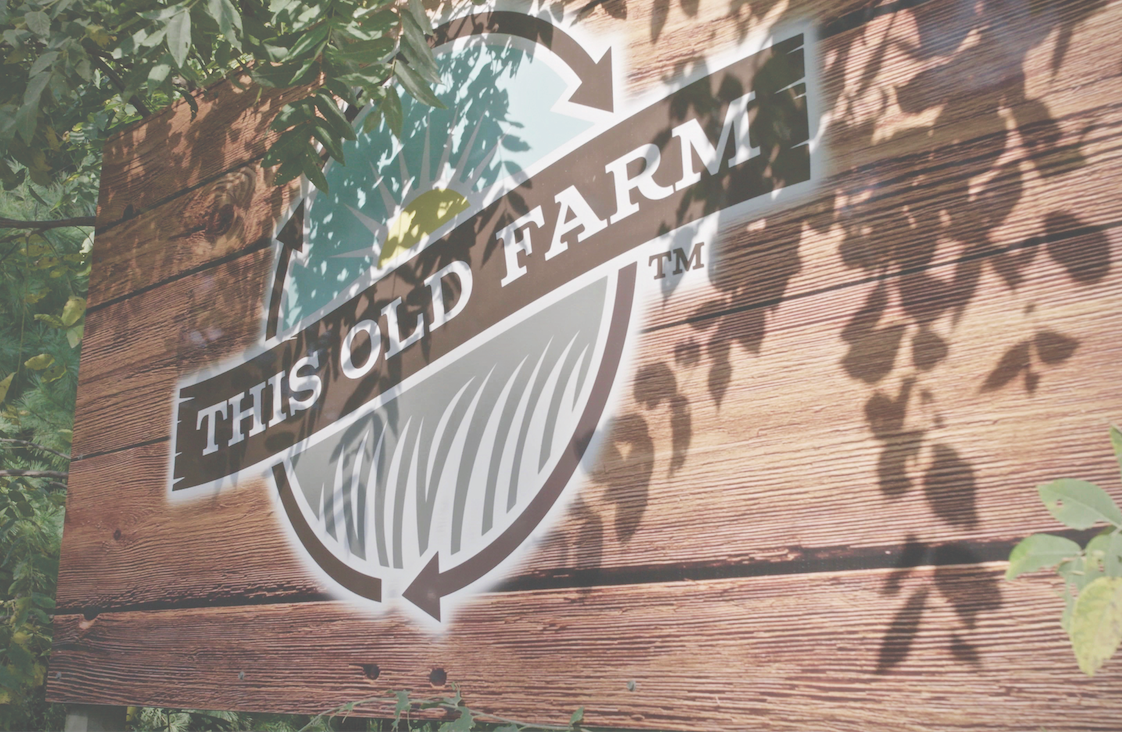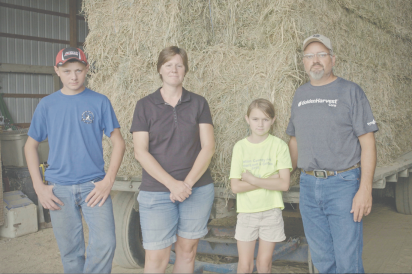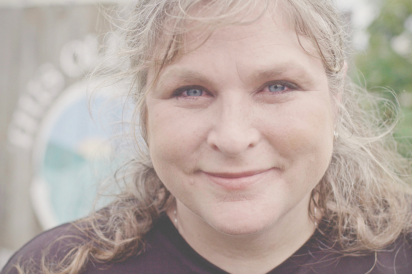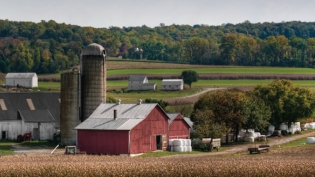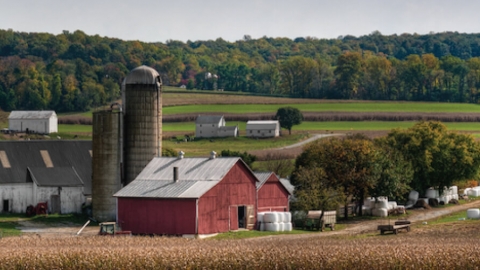This Old Farm: Beyond the Family Business
The phrase “family business” takes on a whole new meaning for Jessica Smith and the folks at This Old Farm in Colfax.
In a recent interview, I asked Smith about the connection between her business and her family, and she immediately turned around in her desk chair and pulled a photo off the wall behind her.
“Why am I in this business? It’s because of this little guy,” she said, holding up a photo of her firstborn son, Conner, who just graduated from Purdue University. “That first child makes you rethink life and how you want to eat. He was the instigator of change, of moving from city to country. We wanted him, and the rest of kids, to have a rural upbringing.”
When This Old Farm started, it was just that: a diversified livestock and vegetable farm in Montgomery County, producing, what Smith calls “real food.” Many of their customers came looking for healthy food to help them or family members heal from illnesses.
“Probably 75 percent of the people who came to see us were sick in some way,” Smith said. “It was heartbreaking and educating at the same time. Those individuals had lost all hope from modern medicine and were looking to find something different to redo their diet. They taught me as much as I was learning from reading at the time. I understood the value of good, responsible, clean food from that experience.”
She also talks about an experience in her garden one summer morning shortly after they began farming when she knew that she was in exactly the right place.
“I was standing there, and it was a nice misty morning and I realized that my whole search of country life was to get back to where I was safe as a child, which was on my grandparents’ homestead in Idaho,” she told me. “We’d go spend the summers with them. And I loved it. It was safe, and it was meaningful, and I liked to be in the garden with them as a child. I hadn’t even put that connection together. We make decisions in our lives, and we don’t necessarily know why, but since then it’s been evident that my grandparents had a good solid role [in my decision to farm].”
Eventually, the demand for food exceeded what the Smith farm could produce, however. “My one single operation had a hard time supplying food year round, so to solve that we developed an alliance of growers that raise a variety of naturally raised products,” Smith said. That was 2009.
That same year, they purchased a processing facility to alleviate their growing concerns about how their food was being processed. They had begun asking questions like “How do you ensure your processing is ‘clean’ if you are producing a clean farm product [free of pesticides, herbicides, antibiotics, and additives]?” With their own processing facility, Smith said they could answer those questions.
Then, about five years ago, after overcoming several major setbacks, including rebuilding their entire processing facility after a devastating fire, This Old Farm recognized another hurdle: Not all of their potential customers were willing to come out to the farm. “So, ‘How do you get food out?’ became an important distribution question,” Smith said.
So what started out as a small business that allowed the Smith family to homeschool their children on their 88-acre rural farm has turned into a large-scale food processing and distribution company, employing more than 20 and marketing the food products of more than 100 local farms.
“Today, I’m excited because the message of knowing your farmer and sustainable ag and local food has gotten out there enough that our customer base has broadened. We still have those customers that are seeking good food to heal themselves, but now more than ever we have people who are looking for good food to stay healthy,” Smith said.
Despite the changes and growth over the years, the core of This Old Farm is still family. But not just Smith’s own family anymore. “The rural economy stretches beyond your family, which I think is so important,” Smith said. “But also stretches to your community.”
When Smith thinks about the farming legacy she’s leaving, it’s no longer just about her own five children, though she suspects at least a couple of them might want to carry on the family business.
“Since the business has expanded, we have 20 families to think of,” Smith said. “This is a family-run business, so I constantly tell my employees to put their family first: ‘Family comes first. Work next. If we all do that, then things will be possible here. So do what’s right for your family.’”
One of those families belongs to Lucas Roosa, slaughter floor manager at This Old Farm. “Family is how I got involved in This Old Farm,” Roosa said. He moved back to Indiana to be with his then fiancé, and now wife, after living out of the state for 20 years. The couple began farming and quickly discovered they had a lot to learn.
“I started small with just a garden and chickens, but knew I needed to learn how to farm better, how to grow things,” Roosa said. “I thought, ‘I’m going to need to know what the market’s like,’ so I asked the local feed store what direction to go. That’s when I got invited to an [This Old Farm] alliance meeting.”
As Roosa learned more about This Old Farm and its humane, clean processes, he wanted to become more involved. “I told Jessica, ‘What I am doing right now is planning to work on my farm, but if you have a position for me, I would do about anything to be part of this.’ That’s when she said, ‘I have a real need for a slaughter floor manager,’” Roosa explained
Employees and their kin are just part of the This Old Farm family, though.
Not to mention the hundreds of farm families who are part of their alliance.
“Beyond my single farm operation, which oftentimes is what gets focused on, there’s so many family farm operations coming together here and interacting together in a nice community,” Smith said.
Then there are also the customers’ families This Old Farms serves.
“When people come in for the service side of our business, the most fun I have is to see whole families come in and fill their freezer at the same time,” Smith explained. “That’s a side of the business I never anticipated.”
Since Smith started This Old Farm looking for a way to give her kids a healthy, rural upbringing, I wondered whether she still feels like she’s accomplishing her goal, even now as the president of a growing company. So I asked her.
“There’s been a lot of change in our family,” Smith admitted. “The kids are growing older and they’re involved in a lot of things, and there’s the realization that you can’t do everything. We were homeschooling, and that’s not a possibility anymore. There’s a whole different lifestyle from a homeschooling family on the farm to a business with kids in school.”
But at the same time, Smith still sees her work at This Old Farm as valuable and important.
“God walks us down a path and we never know what that path is going to be,” she said. “No, my vision was to have a homeschooling family and farm together. But in some ways, I have been granted a blessing that is far larger than I asked for in that I’m able to help lots of other families achieve their dreams.”


